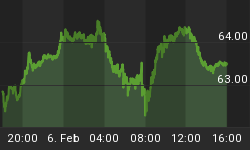
In this missive we reply to the supposed reasons against investing in Gold.
Point: If you bought Gold in 1980, you were in the red for many years.
In only two and a half months, Gold went from $400/oz to over $850/oz. Gold really began to takeoff in the second quarter of 1979 at a price of $250/oz. Some buying came in after Gold's initial crash as it rebounded from $500/oz to $750/oz. The point is Gold spent only nine months above $500/oz. The spike was extremely short-lived. Very few people bought in above $500/oz. Gold bears would have you believe "the public" came in at $800/oz. There wasn't enough time for that. The bubble itself was very quick and over within months.
Point: Since 1980 stocks have outperformed Gold. Stocks for the long run!
Ah yes. Pick an arbitrary date to make your point. How about 2000? 1965? The point is there is a time and season for every asset class. There is always a bull market somewhere. The objective is to find the major trends early and ride them. Investing in stocks in 2000 was a disastrous decision. By 2020, investing in Gold might be disastrous but certainly not now.
Point: Gold is a bad inflation hedge. Look what happened in the 1980s and 1990s.
Yes, we had inflation in the 1980s and 1990s. However, it was disinflation. Long-term inflation rates were coming down. Gold does well ahead of rising inflation or in periods of hyperinflation and deflation. If inflation is low and relatively stable then Gold will not perform well.
Point: What if we have deflation?
Deflation acts as a catalyst for Gold and gold shares. Gold held its value during 1929-1932 while the gold stocks bottomed in 1931 and outperformed for four years. Remember the deflation fears in 2002? Gold had a great run from there on. Sure the 2008 crash hurt but Gold and gold stocks were the first sectors to recover and make new highs. Growing worries of deflation would act as a catalyst for the sector. Remember, in a deflationary period cash is king. However, if all governments are highly indebted (as in now) then Gold also functions as cash.
Point: We won't have rising inflation because banks won't lend and consumers won't spend. The economy is too weak.
There is a difference between inflation and hyperinflation. Inflation is caused by monetary stimulus, bank lending and deficit spending whereas hyperinflation is quite different. In fact, it is a weak economy and deflation that causes hyperinflation in many countries. When a government can't borrow and tax revenues are falling, severe inflation is inevitable. Mind you, we aren't predicting this in the western world. However, when one looks at the US, Europe and Japan, it is impossible that these economies can grow their way out of the debt burden. Hence, they are periodically monetizing debt.
Point: Interest rates will rise and that will support fiat currencies and crush Gold.
Hello? The 1970s? I think that was a pretty good time for precious metals and terrible for Bonds. Western nations are so indebted (particularly the US and Japan) that they can't afford higher interest rates. We've written about this in the past. Higher interest rates will only exacerbate the problem and serve as a major catalyst for the bull market in hard assets.
Point: Gold is a crowded trade and a bubble.
First of all, ignore anyone who calls Gold a trade. It's a bull market not a trade. A trade makes it sound like it is a fad and aberration. Yes, there will be wild swings both ways but the global allocation to Gold and gold shares is 1%. Its estimated that the allocation to Gold and gold shares in pension funds is 0.3%. Does that sound like a bubble? Not even close. Good God, can you imagine if that figure went to 5%?
Point: Gold is just a rock with no utility.
Gold is money and has been throughout history. When governments and their finances are stable, Gold becomes valued as a commodity rather than a currency and its then when its utility is diminished. When government finances are unstable, Gold becomes the money of choice. Saying Gold is just a rock is really ignorant.
Point: You can't eat Gold.
I didn't know the US Dollar had any nutritional value.
If you are looking for more professional guidance to help you navigate this market, then consider a free 14-day trial to our premium service.















